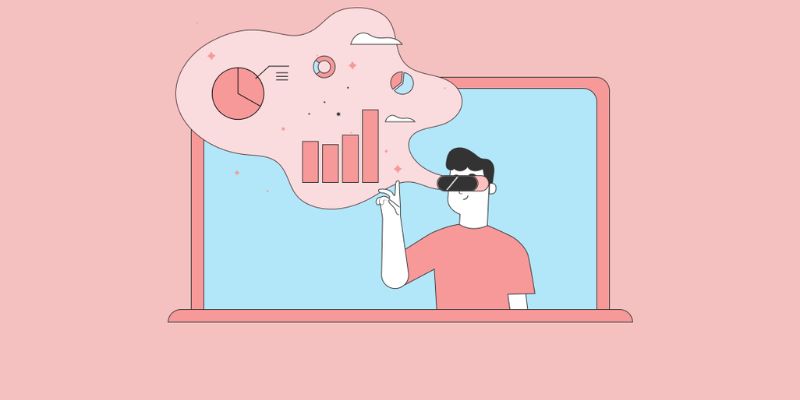The Importance of Data Privacy: Building Unbreakable User Trust
In this digital age, the importance of data privacy and user trust can’t be overstated. Every click, every share, and every online purchase involves personal data that, if mishandled, can damage trust and your bottom line. I’ll show you how to keep that trust rock solid. With rampant data breaches and snooping ads, it’s clear why protecting user information matters. Get ready to dive into simple yet powerful ways to become a champion of data privacy, ensuring your users’ trust is unbreakable. Let’s build that trust together.
Understanding Data Privacy and Its Impact on User Trust
Exploring Personal Data Protection and Consumer Privacy Rights
Think about your personal info like your home. You lock your doors, right? Keeping your details safe online is just like that. Protecting personal data means making sure no one can sneak a peek at your private stuff. Consumer privacy rights are rules saying people should have power over who knows their secrets.
What are consumer privacy rights?
They are rules to keep your info safe and let you decide who sees it. It’s like a safety net so no one can spill your secrets without asking. When companies follow these rules, they keep your trust.
When you trust a site or app with your details, you expect them to keep them tight, right? Well, they must block any sneaky peeks and guess what, you have the right to ask them, “Hey, what info you got on me?” Yep, that’s your right.
The Role of Trust in Digital Platforms and E-commerce
When we buy stuff online, we get a bit worried. “Will they keep my credit card safe?” Trust in digital platforms is a big deal. It’s all about feeling sure your private stuff stays private when you shop or surf online.
How important is trust in online shopping?
Super important! If you don’t trust a shop, you won’t buy from them. It’s just like if you don’t trust someone, you won’t give them your house keys, right? Trust means you can relax, knowing they’ve got your back.
Cybersecurity best practices are like a superhero for your data. They fight off hackers and keep your secrets safe. This makes you feel good about where you click and shop.
If I tell you how to handle sensitive data, it’s not just to scare you. It’s to make sure you’re the boss of your info. Knowing the dangers means you can stop trouble before it starts. Just like looking both ways before you cross the street.
If a data breach happens, it’s like someone got into your house. The effects can turn everything upside down. But, if the place you shop at is prepared, they can stop the bad guys in their tracks.
Keep in mind, things like GDPR and CCPA are kind of like the rules of the game. They make sure everyone plays fair. They say, “Here’s how you must treat people’s info.”
Encrypting personal info is like putting it in a secret code. Even if someone sees it, they can’t understand it. That’s smart, right?
Always check a site’s privacy policy. It tells you how they keep your info under wraps. That’s something you want to know.
We all hate when someone spreads our secrets. It hurts. Risks of data exposure on the web are just like that. But way bigger.
Identity theft is when someone pretends to be you. That’s a huge no-no. We need to fight that with all we’ve got. With us so far?
Good. Because caring for your data isn’t just a nice thing to do. It’s the only way to go if you want people to trust you. Stick to ethical data handling and, trust me, you’ll stay on the good side of everyone.

Best Practices in Cybersecurity for Safeguarding User Information
Implementing Robust Data Security Measures and Information Security Protocols
We keep a lot safe online these days. Money, secrets, our very identities. With so much at stake, it’s no wonder why protecting customer data is not just a good thing to do — it’s a must-do. Good cybersecurity stops the bad folks from getting a hold of stuff that’s not theirs.
Imagine your online info is like treasure. It must stay locked up tight. Cybersecurity best practices are like the locks on that treasure chest. They are rules and tools that keep your digital gold safe. And there’s a bunch of them.
One key rule is to always update your stuff. Bad actors love old, forgotten software. So do updates right when they come in. Use strong passwords too. Not “password123.” More like “8$!s*Za2.” It may be hard to remember, but it’s harder to crack. And please use different passwords for each account.
Another smart move? Multi-factor authentication. It’s like having a guard ask for a secret code before letting anyone in. If someone has your password, they still need another thing, like your phone, to get into your stuff.
Finally, teach your team about these rules. Poor training can cause big problems. Even a smart cybersecurity plan fails if the team doesn’t follow it.
The Significance of Encrypting Personal Information and Secure Data Storage
Now, let’s talk about keeping secrets — encrypting personal information. This means scrambling data so only people with the right key can read it. Think of it like a secret language between friends. Even if someone else hears you, they won’t understand.
Where you keep your data also matters. Secure data storage is like a high-security vault. It keeps bad folks from even getting close to your secrets. Using good encryption and a solid storage solution means even if they get their hands on it, they can’t do anything with it.
Also, don’t forget about the risks of data exposure. To avoid them, be super careful with how you handle sensitive data. Mistakes can lead to a data breach. And the implications? They’re bad news. Trust can break, and fixing it is no small task.
Then there’s GDPR compliance and CCPA guidelines to think about. They set the rules for how to treat personal data. Following them is good for staying out of trouble and shows you respect privacy.
In a world where online identity theft is real and scary, and the consequences of privacy breaches can be huge, we all must do our part. Putting these practices in action builds a wall of trust around you. It shows you’re serious about keeping personal data under lock and key. And when folks trust you, they stay with you. That’s the tie between privacy and customer loyalty.
Cybersecurity isn’t just a buzzword. It’s a promise to keep user data safe and sound. And that’s a promise worth keeping.

Legal Frameworks Guiding Ethical Data Handling
Navigating GDPR Compliance and CCPA Guidelines
Let’s talk about keeping personal info safe and the rules that help us do that. For starters, GDPR and CCPA are big deals in the privacy world. They set the rules for how to handle people’s details online. GDPR stands for the General Data Protection Regulation. It’s a law in Europe that says you have to be careful with personal data. If you use the web, it likely affects you, no matter where you live. Over in California, they have their own rules called CCPA, short for the California Consumer Privacy Act. This tells companies how to respect your privacy.
Now, why should you care? Well, these laws give you power over your info. They make sure companies can’t be sneaky with your data. Both laws say clear “yes” or “no” to what can be done with your stuff. They’re about making sure your details stay safe and don’t end up where they shouldn’t.
But hey, I know what you’re thinking. “That sounds complicated!” Sure, it can be, but it’s my job to dig into these laws and figure out the best way to keep your info locked up tight. Think of it as a game where we’re all on the same team – Team Privacy!
The Importance of User Consent Management and Privacy Policy Essentials
We’ve talked about laws, but what about your choices? Consent management is a big piece of the privacy puzzle. It’s all about your right to say “yes” or “no” to how your info is used. Every time a site asks if they can use your data, that’s consent management in action.
So, they ask, you answer. Easy, right? But the truth is in the detail – the privacy policy. It’s that long text you might skip over when signing up for stuff online. It’s important, though. It tells you what the site will do with your data. You should know what you’re saying “yes” to.
A good privacy policy is like a promise. It says, “We’ll take good care of your details and won’t share them without your say-so.” This builds trust, and in the digital world, trust is gold. It’s the stuff that makes you feel okay about using a site or buying stuff online.
Think of it this way: when a site respects your choices and keeps your details secret, you’re more likely to come back. It’s like finding a safe spot to hang out in the big online playground. You know what’s happening with your info, and that feels good. Plus, it keeps creepy things like identity theft away.
Remember, handling sensitive data isn’t just about ticking boxes. It’s about being fair and honest. That’s what makes people feel secure. And when people feel secure, they’re more likely to share, shop, and chat online. Putting folks first and keeping their data safe is just smart business – it earns trust and keeps everyone happy.

Building a Culture of Privacy-First Approach in Organizations
Data Privacy Best Practices and Privacy-Enhancing Technologies
When we talk about protecting personal data, the stakes are high. With each click online, we share pieces of our story. Companies hold a lot of our data, from names to where we live. That’s why they need to keep it safe.
You might ask, “Why is personal data protection so important?” Here’s the short answer: It helps keep our lives private and safe from harm. Personal information is like a key to our lives. If it gets lost or stolen, our privacy is at risk. Think about online identity theft. It can destroy someone’s life if their personal details get into the wrong hands.
To protect data, companies take steps like encrypting personal information. This means they scramble data so only the right person can unscramble it. They also follow data privacy best practices. Think of these as rules to make sure they handle our information right and don’t let it slip away.
Cybersecurity best practices are another big part of this. They are like having strong locks on doors and windows in our online world. Companies have to use these to keep hackers out. If they don’t use strong security, our data might get stolen.
We also have privacy-enhancing technologies today. These gadgets and computer tricks give us more power over our data. They let us share what we want and keep the rest private. It’s all about giving control back to us.
One more thing. Handling sensitive data isn’t just about using tools. It’s also about having an ethical data handling attitude. This means thinking about what’s right and wrong when using personal details. Organizations should always put our privacy first. When they do, we trust them more.
The Relationship between Privacy Compliance Audits and Customer Loyalty
Now, what’s a privacy compliance audit? Think of it as a checkup for companies. It helps them see if they are following the rules of data privacy laws. These laws tell them how to take care of our personal details. If companies don’t follow these laws, they could get in big trouble.
But these audits do more than just keep companies out of trouble. They also show us that companies care about keeping our information safe. When we see that, we feel good about them. This trust builds loyalty. We come back and use their services again and again. That’s how protecting customer data helps businesses in the long run.
The more a company shows it respects our privacy, the more we trust it. For a company, earning that trust is like getting a gold star for being good. This gold star isn’t just for show. It means they work hard to keep our details safe. We, as customers, like that. And when we like how a company acts, we stay close to them.
In a world where data is always moving, we must trust where it goes. Companies that put privacy first are leading the way. They help us feel safe in our digital spaces. Remember, a privacy-first approach isn’t just nice to have – it’s a must for building unbreakable user trust.
In this guide, we’ve looked at keeping your data safe and building trust. We started with how important data privacy is and why users need it. Then we dug into best steps for strong cybersecurity. We encrypt info and store it safe to protect you. We also went over the laws, like GDPR and CCPA. These make sure your yes is heard and your data stays yours. Last, we saw that when companies care about your privacy, you stay loyal.
My final thought: protecting data is not just tech talk, it’s a trust pact. When companies get it right, everyone wins. Stay safe, stay informed, and here’s to a world where privacy is priority.
Q&A :
What Are the Key Reasons Data Privacy and User Trust Are Essential?
Data privacy and user trust are critical because they foster customer confidence and promote loyalty. When users are certain that their personal data is handled with care and respect, they are more likely to engage with the service or brand. Strong data privacy safeguards can also protect individuals from identity theft and financial fraud. Additionally, upholding data privacy is a legal requirement in many jurisdictions, which helps avoid costly fines and legal battles.
How Does Data Privacy Affect User Trust in a Company?
User trust is directly impacted by a company’s data privacy practices. Transparent and secure handling of personal data can significantly increase a company’s credibility and trustworthiness in the eyes of its users. In contrast, data breaches or misuse of data can severely damage the reputation of a company, leading to a loss of customer trust and potentially to decreased business revenue.
What Can Companies Do to Improve Data Privacy and Build User Trust?
To enhance data privacy and build user trust, companies should implement robust security measures such as encryption, regular security audits, and secure data storage solutions. It’s also crucial for businesses to be transparent about their data collection and use practices, providing users with clear privacy policies and options to control their personal information. Regular training for employees on data security and privacy can also maintain a high standard of data protection.
How Do Regulations Like GDPR Affect Data Privacy and User Trust?
Regulations like the General Data Protection Regulation (GDPR) have a considerable impact on data privacy and user trust by setting strict guidelines for data handling and granting users more control over their personal data. Compliance with such regulations reassures users about a company’s commitment to data privacy, potentially increasing trust. Furthermore, these regulations enforce accountability, ensuring that companies act responsibly or face significant penalties.
What are the Long-Term Benefits of Prioritizing Data Privacy for Businesses?
Prioritizing data privacy yields several long-term benefits for businesses, such as fostering consumer trust and loyalty, which can translate into repeat business and positive word-of-mouth. Companies that maintain stringent privacy practices can differentiate themselves from competitors, potentially increasing market share. Moreover, avoiding data breaches reduces the risk of financial loss from fines, legal fees, and damage control. In the long run, an unwavering commitment to data privacy can become a cornerstone of a company’s brand identity and sustainability.



